World Cup Team in Focus: Ivory Coast
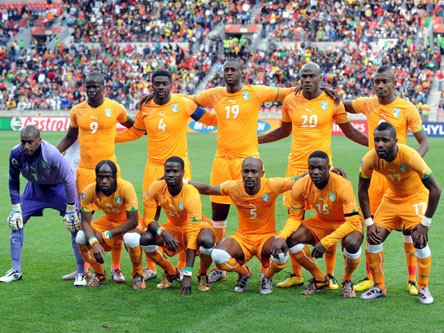
The Ivory Coast national team, also known as Les Elephants, will be appearing in their third successive world cup campaign during this year’s tournament in Brazil. While in their previous appearances, they were eliminated in the group stages itself, this time they boast a potent combination of youth and experience with several game changers among their ranks. This, along with being handed a comparatively open qualifying group, means that most people will be expecting the Ivory Coast to easily progress to the knockout stages of the tournament.
Generally considered a regional powerhouse, the Ivory Coast first rose to mainstream prominence with their 1992 victory over Ghana to lift the African Cup of Nations. Since then, they have gone on to participate two World Cups and have appeared in the finals of another two African Cups. FIFA currently rates the Ivory Coast team as their highest ranked African team.
In the 2006 World Cup, Ivory Coast were eliminated after being placed in the same group as Argentina and the Netherlands, while in South Africa in 2010, they were knocked out by Brazil and Portugal. This years’ tournament sees them placed in Group C, along with Columbia, Greece and Japan. Ivory Coast qualified on the basis of their strong Cup of Nations performances, and Columbia and Greece will both be tough oppositions for them, while Asian Champions Japan are also no pushover.
The 28-member provisional squad announced by the Ivory Coast federation makes for interesting reading, with a large number of seasoned veterans from major European clubs mixed in with a host of promising young talent. Let us have a look at the composition of the squad.
First off, for the goalkeeper position, the vastly experienced Boubacar Barry is the unquestioned first choice. At age 34, he has been capped a total of 80 times and possesses a large amount of European experience. Backup keepers Mande, Sangare and Gbohouo meanwhile share two caps between them and are largely expected to play second fiddle.
The Ivory Coast defense will probably prove to be the deciding factor in their success or failure in the tournament. With the quality of attacking players on display, any team that wishes to progress should have a watertight back line. With players like Didier Zokora, Kolo Toure and Arthur Boka, the team has an experienced core around which they will hope to anchor their defense. The vastly experienced Zokora will undoubtedly feature in the starting XI, with club teammate Sol Bamba being another possibility. Promising youngster Serge Aurier, contracted to Toulouse, is another strong contender for his place as attacking full back. Kolo Toure meanwhile has had a patchy season for Liverpool and may be overlooked in favor of new talent.
The team’s midfield boasts a number of strong and imposing ball players, and they will be instrumental in helping their team get the ball and then control and dominate possession. The defensive potential and box to box stamina of these players also aids them in building from the back in a controlled offensive. Notable names include Cheick Tiote of Newcastle, Didier Ya Konan of Hannover, and Max Gradel and uncapped youngster Ismael Diomande from St. Etienne.
Of course, no Ivorian midfield would be complete without the talismanic presence of Yaya Toure. The imposing Toure is formidable in both attack and defense, and can transition from one to the other with lightning speed. His exploits this season for Manchester City were widely appreciated, and his goal and assist tally proves his quality both on and off the ball. The lethal runs he regularly makes from the deep are capable of splitting open opposition defenses and he will undoubtedly be the key player for the Ivory Coast in this campaign.
The forward line of the team is their true strength, and they boast a significant number of talented strikers and wingers in their ranks. While players like Captain Didier Drogba and Swansea sensation Wilfried Bony will lead the line, wide players like Gervinho, Kalou and Doumbia will spread the defense and threaten from out wide. Everton youngster Lacina Traore is another promising talent for his country.
The Ivory Coast have had their problems with the coaching position, with three different men having filled the position since 2010 itself. However, current coach Sabri Lamouchi has been on the job since 2012 and has delivered an impressive run of results, silencing his critics in the process. At 42, he is the youngest coach at the tournament, and will look to build up his reputation as a successful manager. With 10 wins and 6 draws in his 18 games in charge, he will hope his team continues to show the same solid defensive form and no nonsense approach that has seen them have such a successful run lately.
In the attacking third, the impact of Yaya Toure is difficult to overestimate. He has found great success for both club and country playing in an advanced role behind the striker, and will be expected to create the attacking moves and bring the wingers into play. The team has generally preferred a safety first 4-2-3-1 formation, and this will probably be their approach in the group stages as well. If and when they progress to the knockouts however, they potentially face one of England, Italy or Uruguay, teams against which they will need to show tactical flexibility to prevail.
The one advantage they have over the European teams is their ability to adjust more easily to the hot tropical climate in Brazil, a factor that will definitely have an impact in the tournament. With this being Didier Drogba’s final bow on the international stage, his legions of fans will no doubt be looking for one last performance from the imposing forward, and the rest of the players will also be expected to contribute regularly if Les Elephants want to finally progress to the Knockout rounds of the premier global tournament.
Provisional 28-man squad: Boubacar Barry, Sayouba Mande, Badra Ali Sangare, Sylvain Gbohouo, Didier Zokora, Kolo Toure, Arthur Boka, Sol Bamba, Benjamin Angoua, Serge Aurier, Constant Djakpa, Ousmane Viera, Jean Daniel Akpa-Akpro, Yaya Toure, Cheick Tiote, Didier Ya Konan, Max Gradel, Serey Die, Mathis Bolly, Ismael Diomande, Didier Drogba (c), Salomon Kalou, Gervinho, Wilfried Bony, Seydou Doumbia, Lacina Traore, Giovanni Sio.

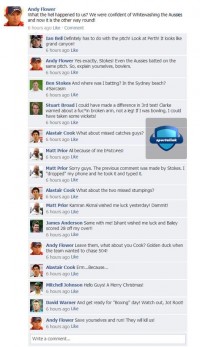
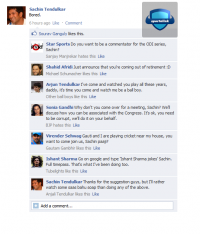
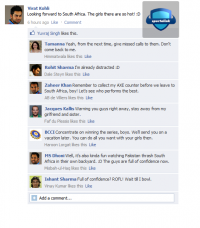
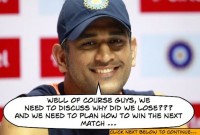
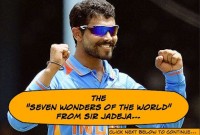
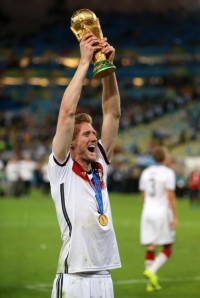
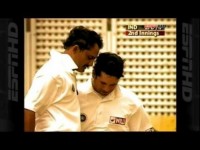
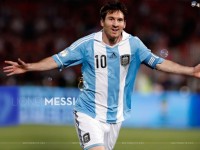
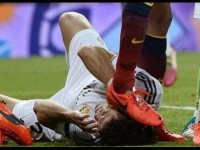
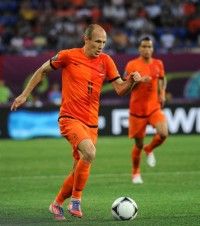
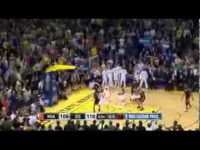
0 Comments/Replies